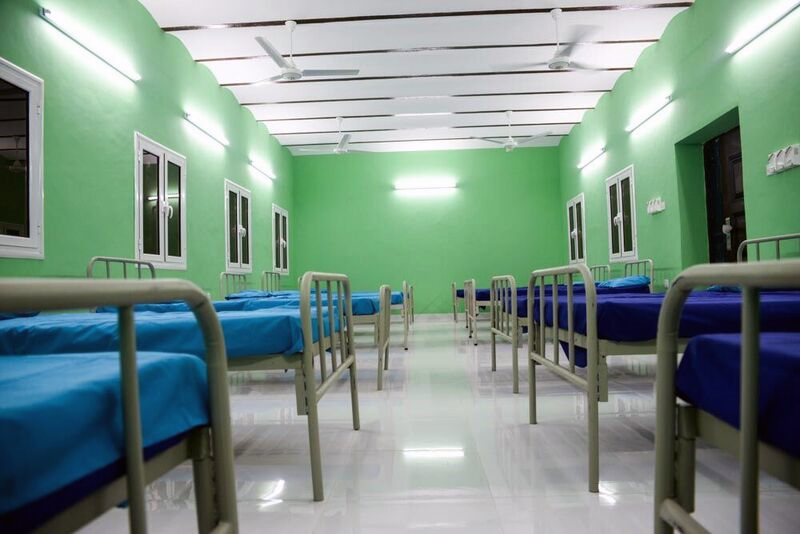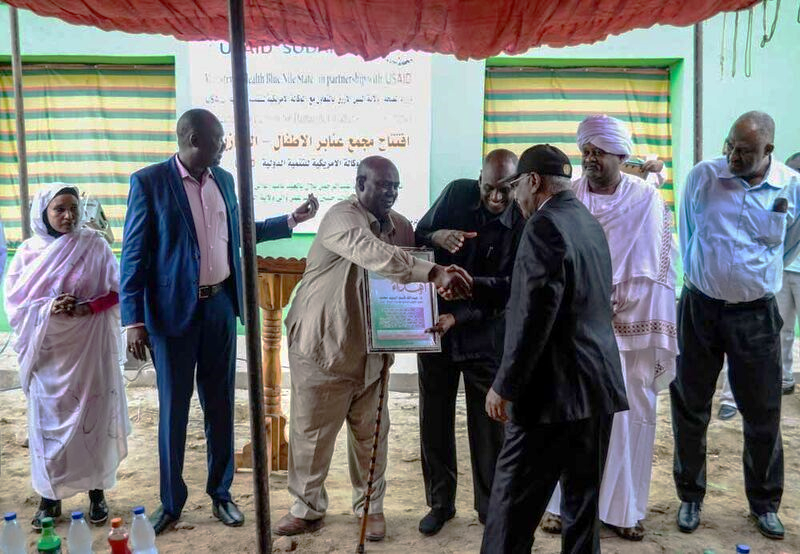
Improving Children’s Health Facilities in Blue Nile State, Sudan
By Manar Hassan and Murielle Munyemana | November 14, 2018

In 2011, across Sudan’s Blue Nile State (BNS), conflict between the government and opposition forces resulted in an eruption of violence that has since kept the region destitute. The Sudanese civil war has forced the displacement of thousands, exacerbated divisive politics along ethnic lines and deteriorated infrastructure and basic services. In particular, recent conflict has significantly impacted children’s health care infrastructure, most notably through the destruction of medical facilities and equipment, as well as a severe shortage of medical professionals. This has been felt throughout the state, but most severely in rural areas where war-affected patients must now seek medical assistance in the state’s capital, Damazine. This influx of patients adds pressure on the capital’s already fragile health care infrastructure, emphasizing the critical need that Damazine Hospital has capacity to match the demands of war-affected communities in BNS.
To address this need, USAID’s Toward Enduring Peace in Sudan (TEPS) project, implemented by AECOM, facilitated the construction of the Damazine Children’s Ward Complex, with the opening ceremony held on August 14, 2018. USAID/TEPS furnished the complex with medical beds and mattresses, while the BNS Ministry of Health agreed to provide medical equipment. USAID/TEPS also conducted training for medical staff on health issues specific to war-affected patients. As part of the Damazine Hospital, the 300 m² Children’s Ward Complex consists of two wards, four sanitary rooms for patients including a veranda, two offices for doctors, and two offices for nurses. The hospital ward represents one of several health interventions by USAID in BNS.

On August 14, USAID/TEPS Chief of Party, Abdalla Mohammed (third from right), inaugurates the Damazine Children’s Wards Complex to government leaders and the community. He’s shown here shaking hands with Sudanese officials from the Blue Nile State, including Dr. Abdulrahman Bilal Bal’eed (third from left), the Deputy Governor and Health Minister.
Prior to construction of the Children’s ward, there were not enough beds to care for sick children and many were forced to sleep in the hospital’s hallways. Completion of the complex is significant and marks a major milestone in improving BNS’ health system, which currently ranks the worst among central Sudan states. BNS’s 25 indigenous groups historically enjoyed a peaceful coexistence but became hostile towards each other due to alliances forged during the Sudanese civil war and competition over basic services. Sharing the complex will open the possibility of improved inter-communal relations by demonstrating the importance of cooperation and tolerance. It will encourage a more conducive health environment for patients from various cultural backgrounds to positively engage with each other.
The children’s ward is one of many steps required to address the needs of a volatile region that has been neglected since erupting into conflict. USAID/TEPS is proud to contribute to interventions that increase the resilience of the vulnerable while promoting peaceful coexistence of ethnically diverse communities.
